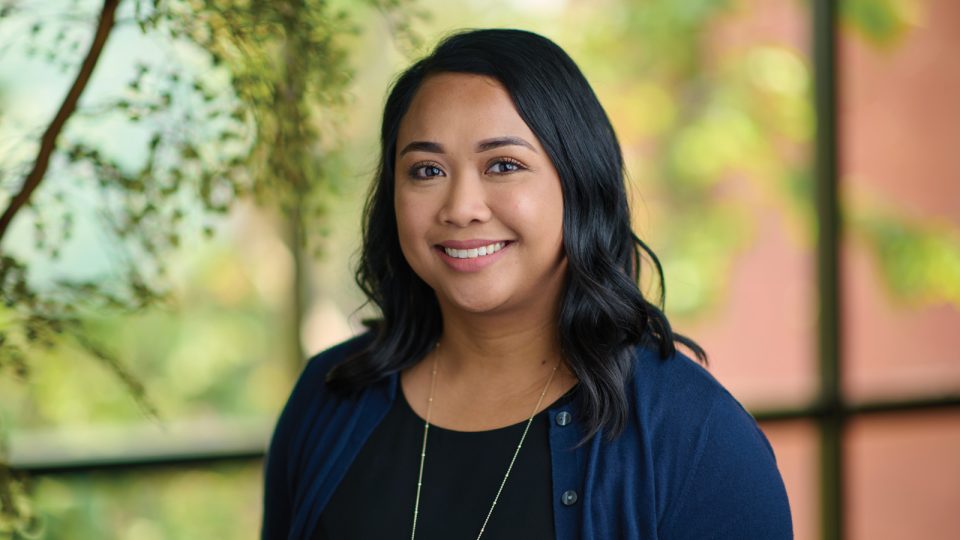Imagine two people who have just developed diabetes. One is a high-income-earner with a graduate degree. She can stroll down safe sidewalks to the grocery store, easily schedule doctors’ appointments, pick up prescriptions on time, and she regularly talks with friends and colleagues about how to manage her health. Another is an uninsured shift worker with two jobs. He lives miles from the nearest grocery store so usually grabs fast food for lunch. He rarely has time or money to take care of his own health, doesn’t know whether he can trust healthcare workers, and feels that there’s little he can do to change his condition.
It is statistically far more likely that his diabetes will remain unmanaged and that he will develop long-term complications related to the disease.

These two characters are fictional, but in the United States, there are estimated to be more than 37 million people with diabetes. Despite the fact that they could all be treated with the same lifestyle modifications and drugs, their outcomes are highly dependent on their socioeconomics. Emily Rose San Diego, a clinical scholar at the Scripps Research Translational Institute, wants to level this playing field. After watching her own father pass away of complications from diabetes, she knew there must be better ways to manage people’s chronic diseases.
“There are factors far outside of your control that impact whether you can successfully manage a chronic condition like diabetes,” says San Diego. “The people around you, your family and community, the public health policies in your city and state, your income and education, and your access to care.”
As a K Scholar at the Scripps Research Translational Institute and a postdoctoral fellow at the Scripps Whittier Diabetes Institute (housed at Scripps Health), she aims to help people from all walks of life understand and manage diabetes. Her efforts are supported by the National Institutes of Health’s Clinical and Translational Science Awards program, a nationwide consortium of institutions aiming to advance the translation of research discoveries into improved patient care.
As one example, she is working with a local Filipino health center to adapt Project Dulce—a long-standing diabetes care and education program developed at Scripps Health, in collaboration with Scripps Research—to be more effective for Filipino-Americans. In addition, she recently received a grant from the Southern California Latino Health Organization (funded by the NIH National Institute of Minority Health) to assess whether a telehealth program can be just as effective as an in-person class for teaching Latinos about diabetes.
In each instance, she focuses on forging connections with the populations she is trying to help, making sure that she understands the unique factors shaping each community’s health.
“When a scientist is developing a drug or an intervention, it is important that their treatment will ultimately live outside the lab,” says San Diego. That’s a concept she teaches graduate students as part of the Social and Behavioral Science Principles for Biomedical Research course at Scripps Research’s Skaggs Graduate School. “It is critical that we are able to communicate our science and find a way to translate the intervention to a real-world setting. That’s where social science comes in.”
San Diego’s path to studying the sociological factors of disease management was not a straightforward one. She began community college as a nursing major, she says, but enjoyed learning about psychology more. After years of trying to stick with nursing, she switched gears to psychology, earning an associate’s degree.
Already older than most college students, San Diego began her bachelor’s degree in psychology at California State University (CSU) Dominguez Hills. There, she took a class with new faculty member Erin Merz, who studies how a person’s interpersonal relationships impact their ability to manage chronic illness. San Diego became a research assistant for the lab and learned how to carry out research and conduct literature reviews. She also became hooked on the conjunction of social science and disease management, and—after her father’s death—the mission to help people control their own disease felt personal.
“I knew that a career in research was hard, and I was going to need a research path that I could spend hours and hours of my life on,” says San Diego. “This was a topic that I felt a connection to.”
San Diego continued at CSU Dominguez Hills to purse her master’s degree in clinical psychology, writing her thesis on how a person’s beliefs about diabetes impact diagnosis and treatment. The more control a person feels they have, the more likely they are to successfully manage the disease, she found.
To expand her ability to help people manage chronic conditions, San Diego pursued her PhD in social and behavioral sciences at the University of Memphis School of Public Health. There, she was exposed to community-based research where public health practitioners immersed themselves in the communities they worked with. Collaborating with Methodist Le Bonheur Healthcare in Memphis, she helped develop a survey for local churches about the needs of their communities and partnered with the congregations to bolster local health promotion initiatives.
“It was the first time I was exposed to such extreme health disparities,” says San Diego. “The poverty levels in some of these communities are incredibly high and it was really eye-opening to me. It made me even more inspired to really learn about how social determinants impact health.”
Now, as a K Scholar at the Translational Institute, San Diego is merging her expertise and areas of interest that have developed over the years, and focusing on understanding what parts of diabetes education and management programs work and don’t work in at-risk communities.
“We need to tailor these programs so they’re appropriate for different populations,” she says. “Diabetes care is not one-size-fits-all and similar approaches do not often work the same for everyone.”